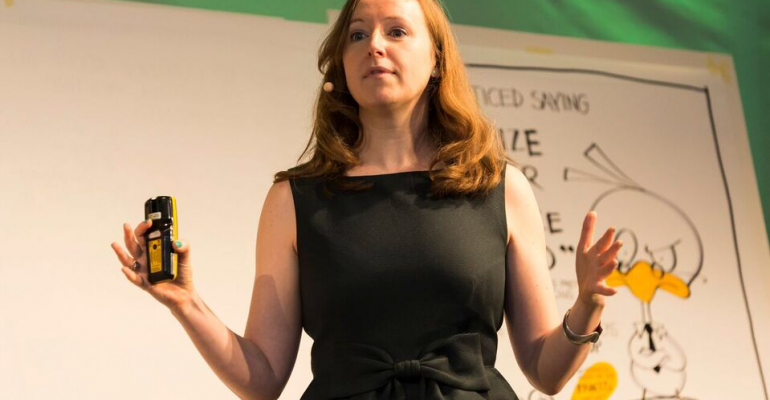Sustainability efforts are a win-win for meetings industry professionals; cutting down on waste is financially desirable and contributing to local communities and educating attendees is part of what makes face-to-face meetings so powerful.
A recent webinar, “Telling the Story of the Power of Events: Academic Input” introduced two of five academics, both of whom are from Leeds Beckett University in the United Kingdom, who contributed to a research paper or commentary to mark the United Nations Year of Sustainable Tourism. The commentary, which will be released for public input this fall, will launch a campaign to involve meeting planners in supporting the U.N. goals on sustainability.
Hosted by Fiona Pelham, founder of the nonprofit Positive Impact and managing director of Sustainable Events, Ltd., the panel included Dr. Thomas Fletcher and Dr. Kate Dashper, both senior lecturers in events management; Vicki Higgins, vice president of destination development for Greater Palm Springs Convention & Visitors Bureau; and Graeme Barnett, senior exhibition director for Reed Exhibitions.
Pelham outlined some of the goals of the commentary and campaign. She hopes to create a community of at least a thousand people who will be ambassadors for sustainability in the industry, and share more than a million related educational opportunities and best practices.
The commentary focuses on five of the 17 United Nations sustainable development goals: hunger, gender equality, reduced inequalities, responsible consumption and production, and climate action.
Fletcher’s research focused on the “reduced inequalities” goal and looked at the impact on host communities of mega events, including sporting events such as the 2010 men’s football World Cup in South Africa. Fletcher believes there is huge potential to create a lasting positive impact on host communities. He said, “In terms of peace and reconciliation, the question is, where is that on the priority list? At the end of the day, most events are owned by someone, so if they are going to make a difference that must be a priority for the owner.”
Dashper’s contribution to the research concerned gender equality. Although the events industry is up to 80 percent female, she said, “there are both opportunities and some barriers;” for example, there needs to be more flexibility in work/life balance in order for women to take on more leadership roles.
Graeme Barnett of Reed explained that sustainability is a high priority for a company that is such a huge consumer of goods and services. He said, “we run 530 events every year across 30 countries, bringing together 7 million participants.” Barnett said that not only is Reed likely to benefit from sustainability best practices, but its wide reach puts the company in a unique position to spread the ideas within the industry. Vicki Higgins’ destination of Greater Palm Springs is already well known for sustainable practices such as water conservation projects, some of the largest solar and wind farms in California, and participation in the city-to-city Tesloop travel. Higgins’s goal is to make help meetings and events coming to Palm Springs aware of sustainability practices, and to learn new ideas to implement.
The next webinar on research and results for bringing sustainability to meetings is scheduled for September 13.





